Latest posts by Michael Gerber (see all)
- From Faith Current: “The Sacred Ordinary: St. Peter’s Church Hall” - May 1, 2023
- A brief (?) hiatus - April 22, 2023
- Something Happened - March 6, 2023
Hey, realize I know very little about this album, so I decided to start an open thread on it. Any McCartney II-related thoughts out there?

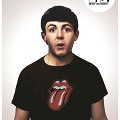
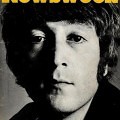
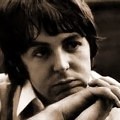
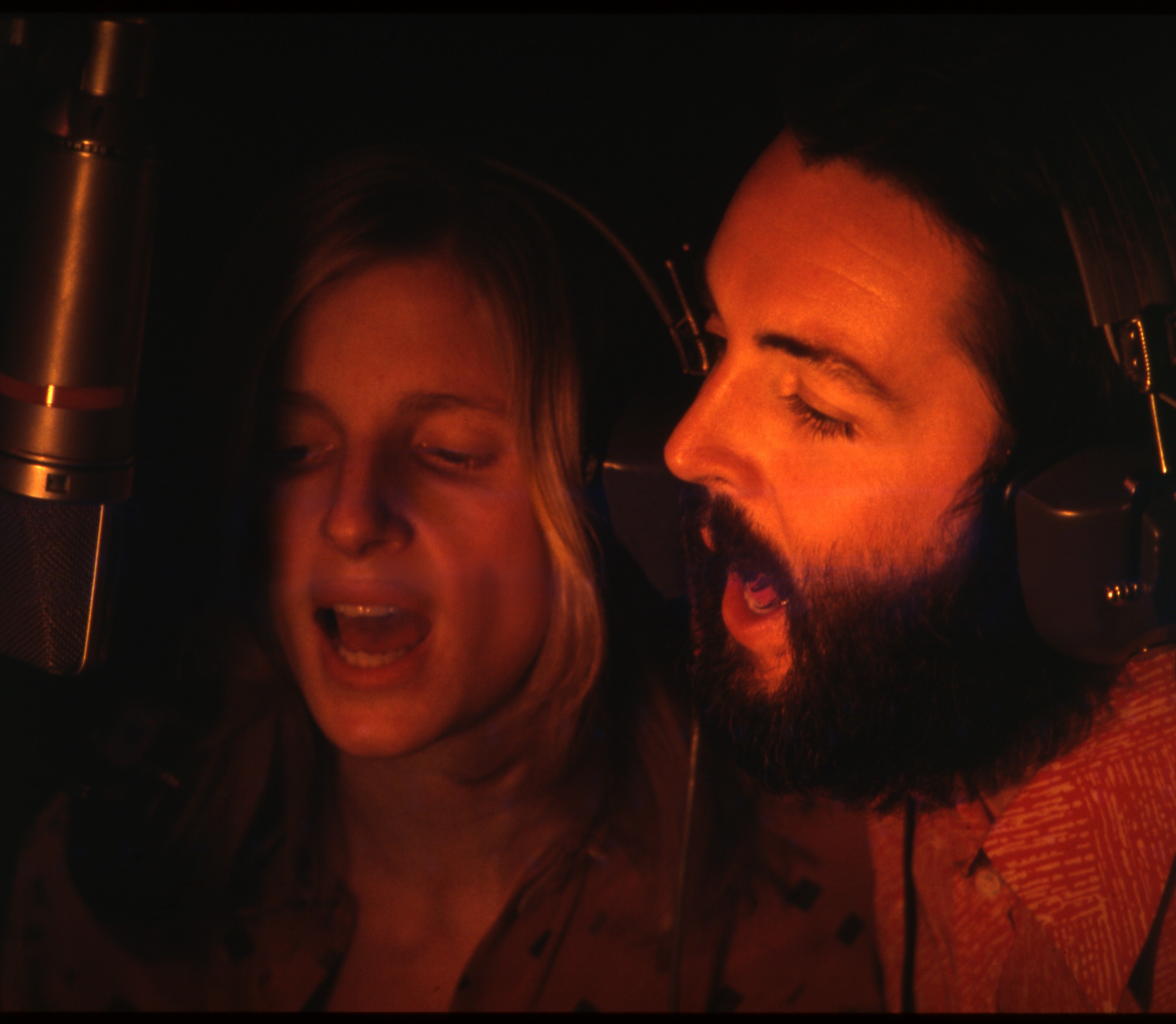
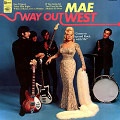
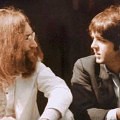
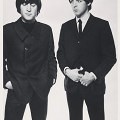
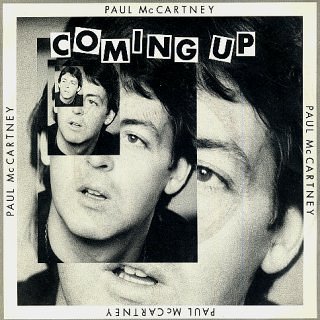
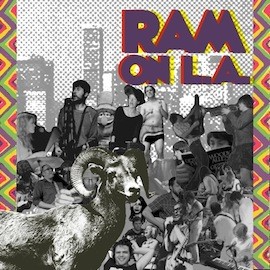
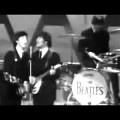
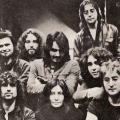

McCartney II is the point at which Paul does that lateral boogie most artists go through in their careers–the one where they stop doing what they think is cool and start doing what they’ve heard is cool.
He’d nudged this juncture at various other points, but was always saved in the end (by, say, the weirdly idiosyncratic London Town). But in 1980, Paul had been through a lot, i.e. Wings dissolving into a cloud of reefer smoke and then… prison time? Right, so the new synths are fun to play with and Stevie uses them, so synths it is.
The record’s actually pretty good, and is honestly one of my favorites in his solo catalogue. It works partially because one of the main reference points on the album is McCartney himself, and he seems to be able to recall the spirit of his older home recordings without forcing it. The title is the obvious reveal, but the record really sounds more Ram-y than its namesake: wacky blues numbers, experimental pop tunes, a little light reggae, and the gang’s all here. Even though it got the Archive Collection rerelease–and McCartney’s camp may have envisioned this destination for the record–I don’t think McCartney II is going to become another indie rock touchstone like Ram. (It is, however, a lot better than the Ram-influenced work other, non-McCartney musicians have been putting out over the last 10 years or so.)
If you’re being reductionist, the best of the instrumental synth numbers (which are grouped together on side two) is “Frozen Jap,” which is presumably some kind of reference to his aforementioned imprisonment, but I have a hard time believing that *that’s* what it’s like to be stuck in the pokey in Japan. On the first half, “Coming Up,” “On the Way,” and “Waterfalls,” from which TLC (?!?) would later borrow a lyric. When electroclash was still a thing, “Temporary Secretary” is occasionally paraded around as evidence that Paul invented various contemporary vocal-and-sequencer subgenres. And he does white reggae synth trance on the endless B-sides “Secret Friend” and “Check My Machine.”
That reminds me: this one and London Town both fall into the category of “by potheads for potheads,” which often leaves squarer folks scratching their heads about it. Ha ha! No, seriously–it’s a 12-minute reggae sequencer beat over which Paul toots a saxophone. Did I mention that someone connected to TLC was listening to this record at some point in history?
I think “One of These Days” is one of his prettiest ballads.
Welcome back, Devin! We’ve missed you.
Matt M,
I’m not even entirely sure I understood all that you just wrote but I love it nonetheless. Thanks for that off-beat-jokey-but-completely-serious and instructively informational review. Can you do one for, say, the White Album now?
-Craig
I second Devin’s comment about “One of These Days.” Not only pretty, but meaningful — a heartfelt song about being able to envision better days even when they aren’t in evidence. Quintessential McCartney optimism, and lovely without being twee.
Otherwise on this album, “Coming Up” is great (no wonder Lennon apparently liked it). “Nobody Knows” I really like as well, and I agree with a previous comment on another post (maybe by Craig?) that it reveals a lot about McCartney’s personality. “Front Parlour,” “Summer Day Song,” and “Frozen Jap” are all enjoyable instrumentals.
I’ve never been able to like “Waterfalls,” in part because of the polar bears. A very mixed album overall, and one that feels like McCartney starting to find his feet again after the end of the Wings era. Only starting, though — this is an album that, like “Back to the Egg,” I think is now sometimes overpraised, while “London Town” is still unjustly disdained.
Matt M, I have an odd fondness for the bonus track “Check My Machine,” maybe just because it’s not pretending to be anything but fun. It’s the way “Waterfalls” aspires to pathos that puts me off.
McCartney II is a terrific record that many McCartney fans (and many Beatles fans) love to hate. They also love to demean it, which is odd because if it had the Beatles name on it, they’d find all sorts of reasons to praise it for the quirky wonder that it is.
The best tracks: Temporary Secretary, Secret Friend, Check My Machine, One of These Days, Nobody Knows, and the various instrumentals. The album — like Ram –gets quite a bit of respect in the certain music circles (from UK musicians like Alexis Taylor in Hot Chip. Some critics — at sites like Stuff.co and The Quietus — go so far as to consider it masterpiece material.
I think the album works so well because it’s Paul just tinkering away and not taking himself or the album too seriously. In the process he does (inadvertently?) reveal some things about himself.
I’ve been ready for Paul to release McCartney III for years.
— Drew
One other thought: Waterfalls is a gorgeous, gorgeous melody but it doesn’t belong on McCartney II because it’s not an experimental song. He should have taken more time with the lyric and put it on a traditional album like Tug of War.
I read once (can’t recall where so I don’t know how reliable this is) that Waterfalls is a song about Paul’s kids, and about his fears that something would happen to them. But he didn’t want to write a song too directly about that because (1) he was protecting their privacy and (2) he didn’t want to give any nutjobs any ideas about harming/kidnapping his kids. So he did what Paul often does and camouflaged the lyrics.
It’s too bad because Waterfalls could have been a classic but the silly lyrics about polar bears and such keep it from being so.
And one more final thought: I mentioned how Paul should do McCartney III. Some people think Paul’s 2008 Fireman album (“Electric Arguments”) — which is excellent, by the way — is his McCartney III.
— Drew
Thanks, Michael and Nancy, but I haven’t gone anywhere. I’m here almost every day, reading the comments.
For Drew’s last comment: I listened to “Electric Arguments” for the first time in a while about a week ago. It has a few bad ‘uns, and a few that meander, but when it’s good it’s utterly mind-boggling. Paul’s best solo album since “Run Devil Run,” nearly a decade earlier. Leagues beyond “McCartney” I or II, I say, without the least desire to sound contentious or invidious.
“Waterfalls is a gorgeous, gorgeous melody…he should have taken more time with the lyric…”
I feel the exact same way about ‘Junk’. I absolutely love ‘Junk’ (mostly the version released on Anthology 3) but if he had taken it more seriously and done his usual bang-up job on the lyrics I really feel like it could’ve been a hit, or at least much more memorable.
CMO: Sorry I can’t agree with you about Junk. I think it’s perfect as is. Doesn’t matter that it wasn’t a hit. Neither was Maybe I’m Amazed (when it was initially released) or Every Night and both of those are great songs that would have made any other artist’s career. I think the lyrics of Junk are stark and poetic, and way ahead of their time in pointing out our culture’s obsession with buying and consuming and then discarding things. The lyrics of Waterfalls, by contrast, just make no damn sense — although I’m sure they made sense to Paul when he was smoking whatever he was smoking at the time he wrote them. 🙂
Devin: I think I would probably agree that Electric Arguments is Paul’s best work in the past 15 years but for me, Chaos and Creation is a close second and sometimes moves into first place. Chaos is filled with beautifully crafted, beautifully written, beautifully played songs — as good as any late-career Dylan work (and at least Paul didn’t plagiarize his lyrics).
Paul is a prisoner of the Beatles’ popularity, though. While Dylan has been allowed to move on from his 60s work, I think many people believe so strongly in the Lennon-McCartney legend — the idea that John and Paul were better together than they were apart — that they don’t want to acknowledge that Paul has done great work on his own. There is always a “yes, but it’s not as good as …” attached to anything Paul produces.
— Drew
Summer 1980 was a most uncomfortable season for me. The reasons are best forgotten. But one of the things that made it bearable was “Coming Up”, especially that live 45 version in the original LP. “Nobody Knows” is funny as hell, and a great playing riff (I play bass guitar and sing…totally original, eh?). And of course “Bogey Music”.
Many of the sounds on this album remind me too much of what everyone does the first time they’re let loose on a synth, which is basically, ‘wow, an arpegiator.. wow, a pitch wheel… wow, a modulation’, and mistake the sounds they’re making as experimental and interesting, rather than what everyone does the first they’re let loose on a synth.
I agree that Waterfalls is almost a classic, just let down slightly by the lyrics. There are a few McCartney songs like that, such as Junk, as was mentioned, and I’d also say Once Upon A Long Ago. It’s like Macca can’t quite discern one of his classic melodies from one of his throwaway ones, so doesn’t realise that a bit more effort with the lyrics would give it the finish it deserves.
He does, though, admit that he’s not great at picking out which of his songs are potential singles rather than album tracks, so I guess it’s the same problem.
I also think he’s too guarded at times and a little more candor would elevate the songs.
“Many of the sounds on this album remind me too much of what everyone does the first time they’re let loose on a synth.”
I think that’s not at all an accurate description of this album. McCartney II has been highly praised by young music critics at The Quietus, AV Club, Pitchfork, Stuff.co, and elsewhere for a reason — Paul was way ahead of his time on many of tracks on this album. What many of those critics talk about regarding McCartney II is that he uses synths on the album in unique ways that ARE different from how they were being used then.
And that’s according to people like Hot Chip’s Alexis Taylor who know far more about electronic music than I do.
— Drew
Hmm, with the greatest respect to Alexis Taylor, there was a thriving electronic music scene in the UK (and elsewhere in Europe) that had been established for several years using synthesisers in more radical ways by the time McCartney II came out in 1980 (unfortunately, I’m old enough to remember!), taking inspiration from the likes of Kraftwerk and Brian Eno. Maybe time has been kind but McCartney II certainly wasn’t seen as groundbreaking at the time, at least not in electronic music circles.
That’s not to say McCartney II is worthless or uninteresting regarding its use of synths. It’s actually refreshing to hear Paul experiment in such a way.
But the older I get, the more I’m aware that the past is often viewed through certain retrospective filters. Unfortunately, I have to rely on instinct to detect those used for the 60s, but I can at least rely on memory and experience when it comes to the late 70s and beyond. And ‘Groundbreaking Macca II’ doesn’t jibe with me.
However, Paul, of course, went on to prove himself as an electronic maestro with the Fireman oeuvre – groundbreaking in its own way at a time when the genre had well and truly established itself in a circular rut. But that’s another story.
If you really want to hear what “just got a synthesizer — wow!” sounds like, check out George Harrison’s “Electronic Sound.” Now that’s really unshaped.
I agree with Drew about “Junk.” I don’t think there’s anything wrong with the lyrics, unlike the lyrics in “Waterfalls.” “Buy!” vs. “Why?” is a great summation of consumer culture’s back-and-forth, IMO.
One last thought: Paul really goes overboard with synthesizers on “Press To Play,” an album that lacks the goofy charm of McCartney II. It’s not my least favorite McCartney album (that’s “Pipes of Peace,” which I abominate), but it’s close.
But then, on the Fireman albums, he gets it together. I’m glad to see “Electric Arguments” is getting some critical love, but I think “Rushes” is incredibly underrated. But that’s another post.